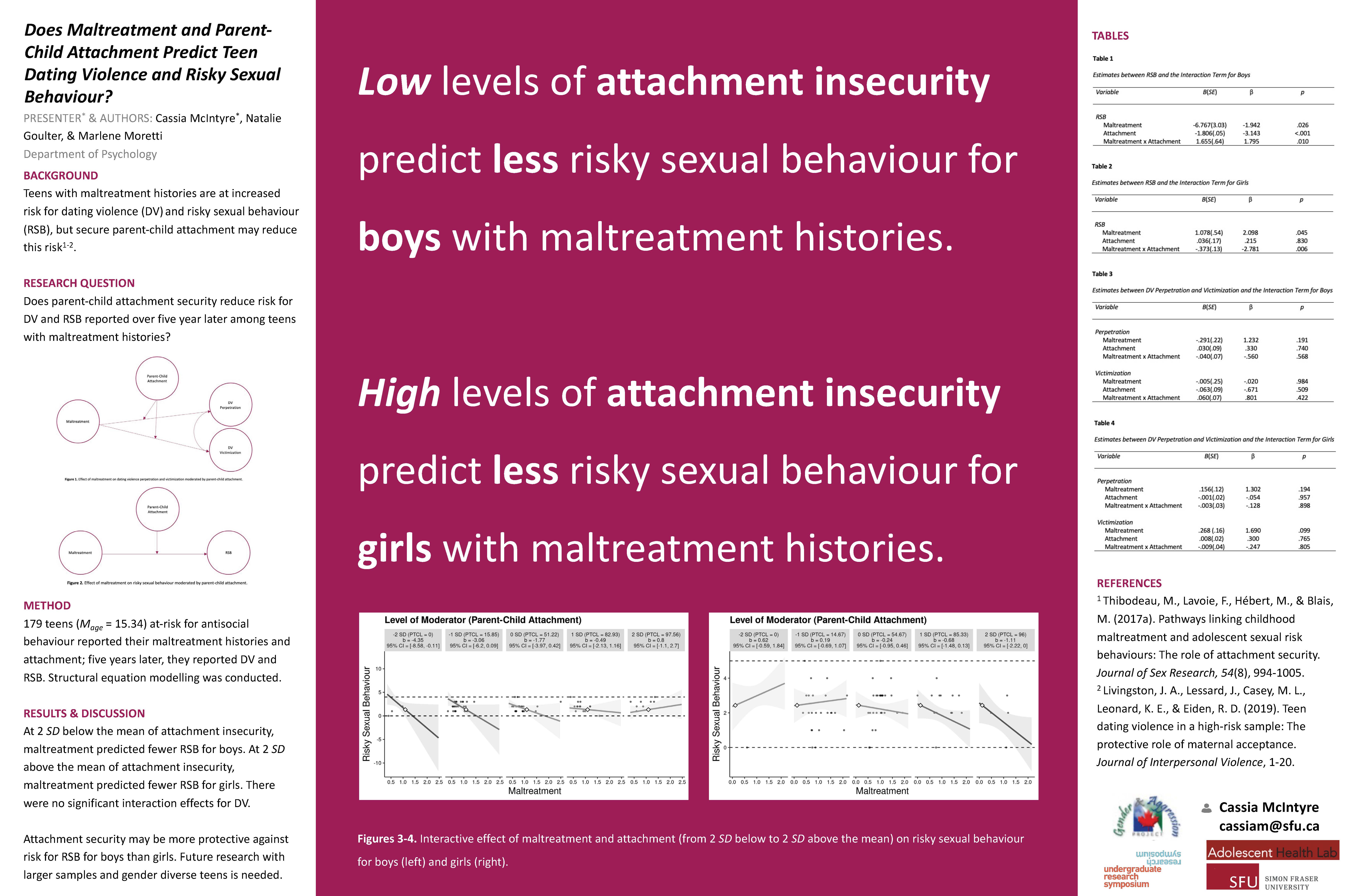Does Maltreatment and Parent-Child Attachment Predict Teen Dating Violence and Risky Sexual Behaviour?
Main Article Content
Abstract
Dating during adolescence can promote positive social and emotional development, but not all adolescent romantic relationships provide these benefits. Dating violence (DV) and risky sexual behaviour (RSB) often co-occur in unhealthy romantic relationships, posing significant threat to adolescent mental and physical health. Adolescents with maltreatment histories are at greater risk for DV and RSB, while research shows that secure parent-child attachment reduces risk for these outcomes. However, few studies have examined these associations longitudinally, with well-validated attachment measures, or among high-risk teens. First, we aimed to determine whether maltreatment and parent-child attachment predicted DV and RSB over five years later. Second, we aimed to determine whether parent-child attachment security moderated the association between maltreatment and DV and RSB. We hypothesized that maltreatment would predict greater reports of DV and RSB, and that parent-child attachment security would moderate this association, leading to fewer reports of DV and RSB. Participants were 179 adolescents (54% boys; Mage=15.34) at-risk for antisocial behaviour. Adolescents reported their maltreatment histories (e.g., physical/emotional abuse, neglect) and attachment; five years later, they reported DV perpetration and victimization and engagement in RSB. This Honours thesis addresses several methodological limitations of previous research. A key strength is our consideration of normative versus risky behaviour, allowing a developmentally-appropriate exploration of sex to be distinguished from RSB. Non-binary and sexual minority teens are at greater risk for DV and RSB; future research should include these teens to identify protective factors and explore their unique experiences. Implications for research and practice will be discussed.
Faculty Supervisor: Dr. Marlene Moretti, Department of Psychology, Simon Fraser University
Research Team Members: Natalie Goulter, Department of Psychology, Simon Fraser University
Article Details

This work is licensed under a Creative Commons Attribution-NonCommercial-NoDerivatives 4.0 International License.

